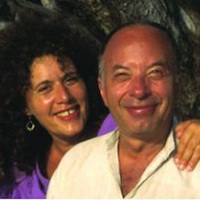We will always blame and condemn those we feel are responsible for wars and social injustice, without recognizing the degree of violence in ourselves. We must work on ourselves as well as with those we condemn if we wish to move towards peace.
~ Thich Nhat Hanh, nominated for the Nobel Peace Prize by Martin Luther King Jr.
There’s lots of fear mongering going on at the moment. Fingers are being pointed. Rage is being tossed around. This makes us quake in our boots, be fearful of the “enemy” or the “opposition,” or anything else outside our known world.
Fear mongering is easy. Fox News political analyst Juan Williams said in 2010 how he gets nervous if he’s on a plane with Muslims. Immediately, all his listeners felt a sense of empathy with him—it kindled their own fear and showed how, when a seed of fear is planted in our mind, it generates instability to the point of paranoia, which can spread like wildfire.
A single match can burn down an entire forest.
In the same way, anger can spread and affect all it meets—like a 15-minute video, itself the result of anger and irrational fear, that has ignited anti-US clashes from Morocco to Malaysia to Sydney, Australia. At the time of writing seven people have been killed, thousands injured and innumerable buildings destroyed.
The only thing we have to fear is fear itself.
~ President Franklin D. Roosevelt in his first inaugural address
Fear has many faces, many disguises. There is fear that is a natural response to physical danger. And there is fear that is self-created, such as a fear of failure, of the dark, of being out of control, being different, lonely, or of unfamiliar “other people.”
Just as people fear communism, now they also fear Muslims. And such fear easily becomes racism. As Juan Williams also said in 1986:
“Common sense becomes racism when skin color becomes a formula for figuring out who is a danger to me.”
Ultimately, fear is about survival of the ego, the me-centered self, especially when the structures we have created to keep us feeling safe are, in our limited view, being threatened. The ego-mind casts a shadow of fear of potential loss and destruction. Many of us live our whole lives this way, with shadows haunting us like ghosts wherever we go.
When fear is in control we become irrational, resistant to change and spontaneity. We get angry, defensive, hidden behind self-constructed walls of protection, which reinforces separateness, isolation and enmity. Fear makes us cling to the known and reject anything that is unknown. Violence invariably arises out of such fear. Unacknowledged, it can wreck havoc in our own lives and in the world around us, as seen in terrorist attacks, gang fighting, rape, or forceful and abusive behavior.
This is the real enemy within: the part in us (whether it is bitter, angry, fearful, ignorant) that refuses to recognize we are all interconnected to each other.
We become fearless only when we can turn fear around and face it, get to know it, release resistance to it, and open our hearts. When we acknowledge and take responsibility for our own fearful and aggressive tendencies, when we see that the enemy within is actually more harmful than the enemy without, then we have the ability to change not only our own lives but the world as well.
We can make tolerance, acceptance, forgiveness and love our priorities. Which doesn’t mean we are always in spaced out bliss while ignoring the conflicts around us, but it does mean we have shifted our focus.
Those people we have a difficult time with are really our teachers, as without an adversary—or those who trigger a strong reaction such as anger—we would not be motivated to develop loving kindness. So we should be grateful to them for enabling us to be more compassionate and, as the Dalai Lama says, for teaching us greater patience. We can actually thank our exasperating partners, reckless teenagers, competitive colleagues or misguided fanatics for the chance to be kind. What a gift!
All this is possible through meditation that not only invites us to witness anger, but also to get to know and make friends with ourselves, to dissolve the “me versus you,” the power struggles and one-upmanship. It gives us a midpoint between expressing anger and repressing it, a place where we can hear our feelings with awareness and acceptance.
Meditation may not be a cure-all— it’s not going to make all our difficulties go away or suddenly transform our weaknesses into strengths—but it does enable us to rest in an inclusive acceptance of who we are. This does not make us perfect, simply more fully human.
~
Meditation – The Best Friend You Will Ever Have
A four-week webinar (on-line course) with Ed and Deb Shapiro, on discovering the greatest friend you could have: meditation. You can join in and download classes anytime. A free introduction on September 20, and a four-week webinar starting September 27.
A four-week webinar (on-line course) with Ed and Deb Shapiro, to learn how repressed, denied, or ignored thoughts and feelings are linked to specific body parts and illness. Starts October 25.
Editor: Lynn Hasselberger
Like elephant spirituality and enlightened society on facebook.







Read 1 comment and reply